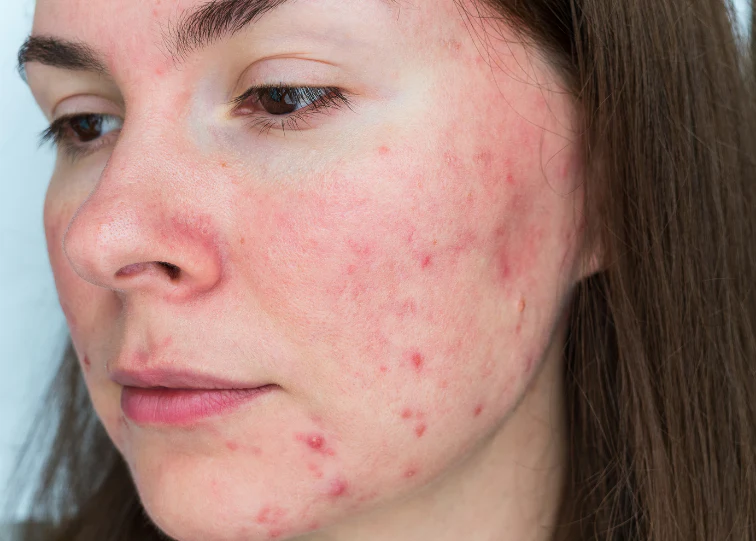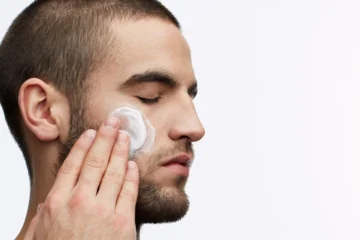Understanding the Skin’s Barrier and Why It’s Crucial
Your skin’s barrier is its first line of defense against environmental aggressors, bacteria, and moisture loss. This barrier, also known as the stratum corneum, consists of cells and lipids that protect your skin’s deeper layers. When functioning properly, it keeps your skin hydrated, smooth, and resilient. However, when compromised, it leaves your skin vulnerable to a host of issues.
A healthy skin barrier is essential for maintaining overall skin health. It prevents irritants from penetrating the skin and keeps moisture locked in. Understanding the importance of your skin’s barrier can help you make informed decisions about your skincare routine and products.
In this guide, we will explore the signs of a damaged skin barrier, provide professional insights on how to repair it, and offer a step-by-step guide to help you achieve a healthy, glowing complexion. Let’s get started on understanding and repairing your skin’s barrier like a pro!
Signs of a Damaged Barrier and How it Affects the Skin
A compromised skin barrier can manifest in various ways. Here are some common signs to watch out for:
- Dryness and Flakiness: If your skin feels unusually dry or starts to flake, it may be a sign that your barrier is not retaining moisture effectively.
- Redness and Inflammation: Persistent redness and inflammation indicate that your barrier allows irritants to penetrate the skin.
- Increased Sensitivity: A damaged barrier often leads to heightened sensitivity, making your skin more reactive to products and environmental factors.
Understanding these signs can help you identify when your skin’s barrier needs attention. Ignoring these symptoms can lead to further complications, such as chronic dryness, acne, and even eczema.
Addressing a damaged barrier is crucial for maintaining healthy, resilient skin. Dr. Michelle Henry states, “A damaged barrier can lead to a cascade of issues, from dehydration to inflammation. It’s crucial to repair it as part of any skincare routine.”
Professional Insights: Dermatologists and Skincare Experts on Barrier Repair
Dermatologists and skin care experts agree that repairing the skin barrier is essential for long-term skin health. Here are some expert insights:
- Dr. Ellen Marmur emphasizes the importance of understanding your skin’s barrier, stating, “Understanding your skin’s barrier is the first step to a healthier complexion.”
- Dr. Eileen Lamb highlights the role of consistency in barrier repair, saying, “When it comes to barrier repair, consistency is key. Stick to gentle, nourishing products and give your skin the time it needs to heal.”
- Dr. Claire Chang recommends looking for specific ingredients, advising, “Look for skincare products with ceramides, hyaluronic acid, and niacinamide to support and repair your skin’s natural barrier.”
These insights underscore the importance of using the right products and maintaining a consistent skincare routine to repair and strengthen your skin’s barrier effectively.
Step-by-Step Guide to Repairing Your Skin Barrier at Home
Repairing your skin’s barrier at home is entirely achievable with the right approach. Follow these steps for a comprehensive barrier repair routine:
Step 1: Identify the Specific Signs of a Damaged Skin Barrier
Understanding the signs of a damaged barrier is the first step. Look for dryness, redness, sensitivity, and any changes in your skin’s texture.
Step 2: Understand the Role of Different Skincare Products and Ingredients
Not all skincare products are created equal. Focus on those that are specifically formulated to repair and protect the skin barrier. Key ingredients to look for include:
- Ceramides: Help restore the skin’s natural barrier.
- Hyaluronic Acid: Attracts and retains moisture.
- Niacinamide: Reduces inflammation and strengthens the barrier.
Step 3: Create a Personalized Skincare Routine for Barrier Repair
Develop a routine that includes gentle cleansing, hydrating serums, and barrier-repairing moisturizers. Avoid harsh exfoliants and products with alcohol or fragrance.
Step 4: The Importance of Consistency and Patience in Seeing Results
Barrier repair takes time. Be patient and stick to your routine for several weeks to see noticeable improvements. Consistency is key to long-term success.
Step 5: FAQs and Common Mistakes to Avoid in the Process of Barrier Repair
Common mistakes include over-exfoliating, using too many active ingredients simultaneously, and skipping moisturizer. Address these pitfalls to ensure a smooth repair process.
Step 6: Realistic Timelines for Observing Improvement in the Skin’s Barrier Function
While results vary, most people see improvements within 4-6 weeks. Persistent issues may require professional advice from a dermatologist.
Step 7: Tips for Maintaining a Healthy Skin Barrier in the Long Term
Maintain your barrier by using sunscreen daily, avoiding harsh skincare products, and staying hydrated. Regularly update your routine to adapt to seasonal changes and skin needs.
The Best Products and Ingredients for Barrier Repair
Choosing the right products is crucial for effective barrier repair. Here are some dermatologist-recommended options:
Cleansers
- CeraVe Hydrating Cleanser: Contains ceramides and hyaluronic acid to cleanse without stripping moisture.
- La Roche-Posay Toleriane Hydrating Gentle Cleanser: Gentle and hydrating, suitable for sensitive skin.
Serums and Treatments
- The Ordinary Hyaluronic Acid 2% + B5: Provides deep hydration and supports the barrier.
- Paula’s Choice 10% Niacinamide Booster: Reduces redness and strengthens the skin.
Moisturizers
- First Aid Beauty Ultra Repair Cream: Rich in ceramides and colloidal oatmeal to soothe and repair.
- Eucerin Advanced Repair Cream: Intensely hydrating with ceramides and urea.
Dr. Claire Chang advises, “Look for skincare products with ceramides, hyaluronic acid, and niacinamide to support and repair your skin’s natural barrier.” These ingredients are proven to be effective in restoring and maintaining a healthy skin barrier.
Conclusion
Maintaining a Healthy Skin Barrier for Life
Repairing your skin’s barrier is not just about addressing immediate concerns; it’s about fostering long-term skin health. By understanding the signs of a damaged barrier, using the right products, and maintaining a consistent routine, you can achieve and maintain a healthy, resilient complexion.
Remember, your skin’s barrier is your first line of defense. Taking care of it will reward you with a glowing, hydrated, and youthful appearance. For personalized advice and product recommendations, consider booking a consultation with a skincare expert or dermatologist.
Stay consistent, be patient, and enjoy the journey to healthier skin. Your skin will thank you!
For more expert insights and personalized skincare tips, sign up for our newsletter and join our community of skincare enthusiasts today. Together, we can achieve the best skin of our lives.





